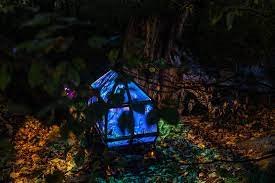Calling all bee, sawfly, beetle and fly experts (amateur or professional)!
Primary image caption
Turnip Sawfly (Athalia rosae) - one of the species sequenced for Darwin Tree of Life
E-Surveyor
E-Surveyor is a free mobile app that helps farmers and landowners to assess the quality of habitats they manage. It can be used to undertake the assessment of agri-environment schemes.
With E-Surveyor, users can:
Take advantage of AI to assist with identification of plant species
Learn which pollinators and other insects are associated with the plants in different habitats
Undertake structured surveys and compare observations with established checklists
Understand your successes and learn how you can improve
View Results
| No information available | |||
| No information available | |||
| No information available | |||





